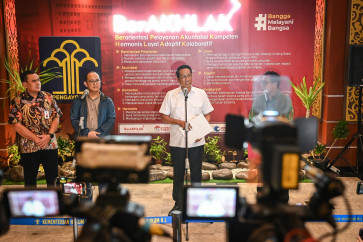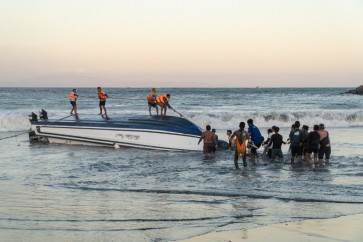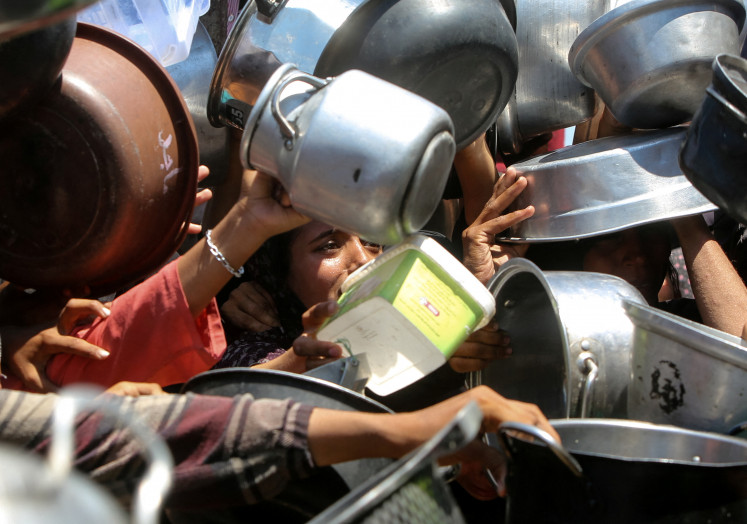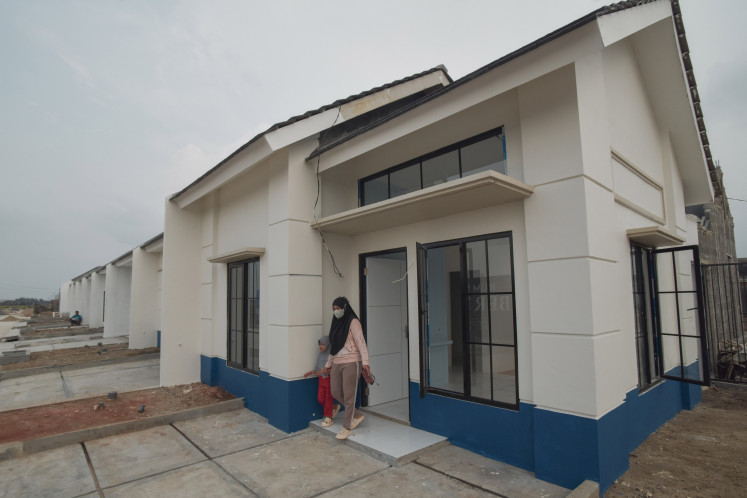Popular Reads
Top Results
Can't find what you're looking for?
View all search resultsPopular Reads
Top Results
Can't find what you're looking for?
View all search resultsEvacuees beg for money to survive
Here they are: Children spend time together at a misplaced persons camp in Ndokum Siroga, Simpang Empat district, Karo, North Sumatra
Change text size
Gift Premium Articles
to Anyone
H
span class="caption">Here they are: Children spend time together at a misplaced persons camp in Ndokum Siroga, Simpang Empat district, Karo, North Sumatra.(JP/Apriadi Gunawan)
The economic hardship brought on by seven years of eruptions at Mount Sinabung in North Sumatra has forced Bahrun Tarigan and his friends to become beggars during the recent Flowers and Fruits Festival held in Mejuah-Juah Park, Berastagi.
The 47-year-old from Sigarang-garang subdistrict, Karo regency, was seen asking for money from visitors of the annual event by holding up a piece of paper explaining that he was an evacuee of Mount Sinabung’s eruptions.
In a short period of time, Bahrun and his two friends were able to collect more than Rp 200,000 (US$15) before other evacuees stopped them, claiming such behavior only brought shame to evacuees.
Pelin Depari was among those who stopped the three men from begging for cash. He said there were other ways for the evacuees to earn a living.
“We indeed need funds to support our lives, but it is shameful watching others begging for money,” Pelin told The Jakarta Post on Monday.
Fellow evacuee Asni BR Karo, 45, from Kota Tengah subdistrict, said that during her two years living in the refugee center, she has yet to receive aid from the government, though she is deeply in need of money to care for her family.
The mother of three, who has been appointed coordinator of Ndokum Siroga evacuation center, realized that other evacuees have turned to begging for money so they could send their children to school and support their daily needs for food and water. But begging was not for Asni.
“I still have a field that I can cultivate, though I was also forced to take out several loans to buy seeds and fertilizer,” Asni said, blaming the frequent harvest failures the area has experienced on volcanic ash from eruptions.
Asni also expressed concern over having stayed in an evacuation center for so long, worrying that it might affect her children.
“We are afraid they will lose their future,” she said.
She added that around 200 of the 410 people living in Ndokum Siroga evacuation center were children.
Data from the Karo Disaster Mitigation Agency (BPBD) shows 2,038 families currently live in the region’s eight refugee centers.
Some children, Asni said, no longer went to school due to lack of funds.
Her own child, for example, is unable to go to university for the same reasons.
“We don’t have money to pay for the tuition fee,” she said, expressing hope the government would realize it was important for children living in evacuation centers to continue their schooling.
Natanail Perangin-angin of Karo BPBD said the regency administration has done its best to care for Sinabung’s evacuees, had limited funds to do more.
“However, we have plenty for the logistic needs. There is no problem for daily needs, for foods,” Natanail told the Post.
Responding to news of evacuees begging for money, Natanail said they could try to find jobs instead, adding: “There is no need for them to beg here and there. It’s embarrassing.”










